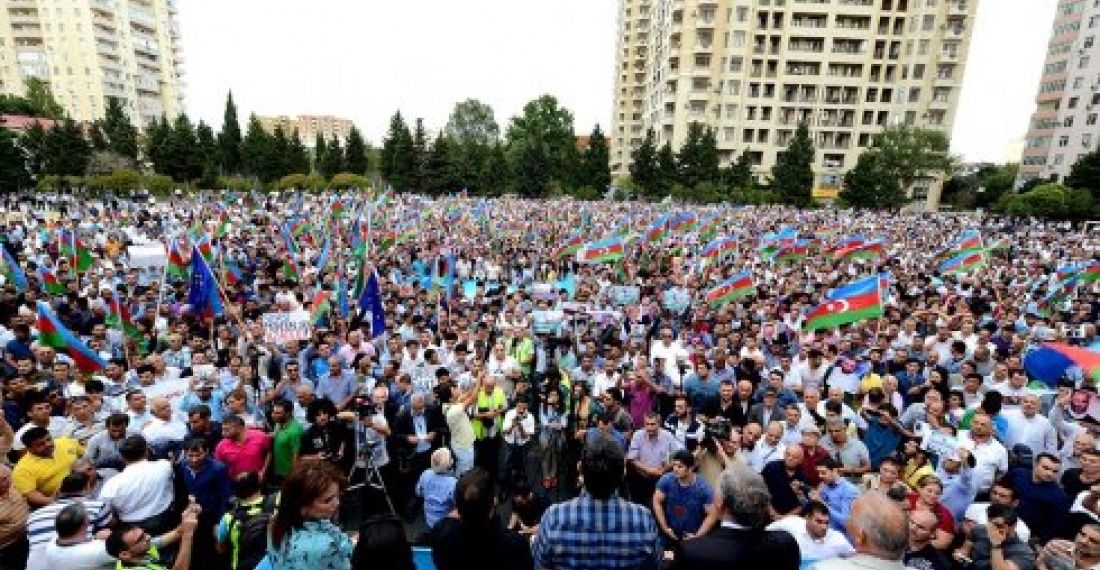The Azerbaijani opposition gathered within the "National Council" on Sunday organised a rally in the capital Baku.
The rally was held at the stadium "Mahsul" in the Yasamal district of the city. The rally was held with the approval of Baku municipal authorities. Ahead of the rally the Azerbaijani Popular Front Party held a demonstration to protest against the upcoming September 26 constitutional referendum.
Party leaders demanded the cancelling of the referendum, the release of political prisoners and an end to political and economic corruption, according to Meydan TV
Popular Front leader Ali Karimli, called the event 'a new start to freedom.'
The governing New Azerbaijan Party has dismissed the opposition activities as the work of those receiving foreign funding. Trend news agency quoted YAP Deputy Executive Secretary, Siyavoush Novruzov MP as saying that the organizers of the rally in Baku receive financial resources from the foreign organizations, He said the National Council's rally gathered relatives of party leaders, and of members of the National Council.
Novruzov said the rally organizers were trying to demonstrate to foreign organizations that there is a protest movement in Azerbaijan.
Commonspace.eu political editor said in a comment that opposition rallies are a rare event in Azerbaijan and are usually held under tightly controlled conditions. The opposition rally on 11 September is part of the campaign ahead of the 26 September referendum. Several oppsotion organisations are calling for the referendum to be cancelled. This is unlikely to happen, but if turnout on 26 September is very low the government will have to resort to ballot stuffing to boost numbers.
source; commonspace.eu with Meydan TV, Trend News Agency and other Azerbaijani media outlets.
photo: Opposition Rally organised by the National Movement in baku on 11 September 2016 (picture courtesy of Meydan TV)







